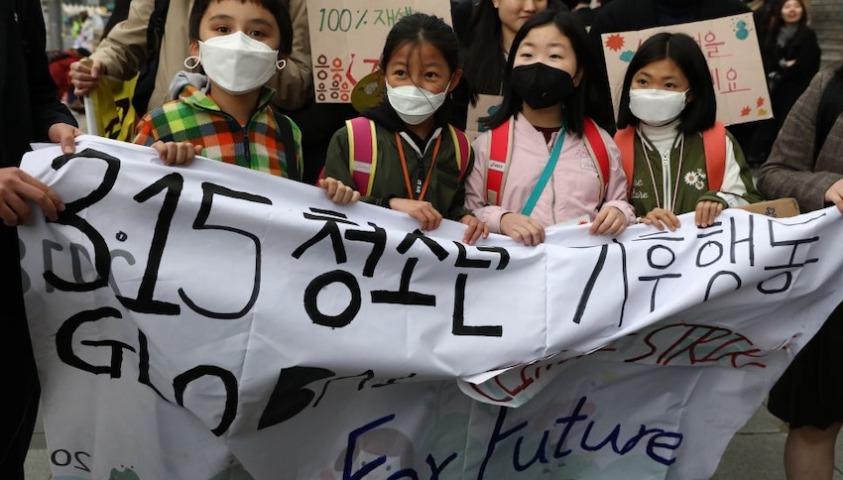Youth-Led Climate Court Victories Reach Asia, as South Korean Court Mandates Firm Emissions Reduction Targets
Photo by Chung Sung-Jun/Getty Images
A top South Korean court has ruled that the government’s efforts to fight climate change are insufficient and do not safeguard its citizens sufficiently, according to reporting from the Guardian and elsewhere. The ruling is the first of its kind in Asia.
The Constitutional Court ruled on a consolidated petition representing more than 250 plaintiffs, many of them teenagers and other young people; the case began in 2020, when the South Korean arm of Greta Thunberg’s school strike movement, Youth 4 Climate Action, filed a case arguing that the government’s lack of specific emissions targets violated fundamental rights of them and of future generations.
The country’s Carbon Neutral Act, passed in 2010, already requires at least a 35 percent emissions reduction from 2018 levels by 2030; the government responded by setting a 40 percent reduction goal. However, between 2030 and 2050, the targets are more nebulous; the new ruling will require more specific plans to reach net zero by mid-century, a goal shared by many countries around the world.
In a press release, the plaintiffs celebrated the first ruling of its kind in Asia. “The ruling could serve as a critical turning point, inspiring further legal actions across Asia to challenge insufficient climate policies.”
A similar ruling was issued in 2021 in Germany, and youth-led climate lawsuits have proliferated around the world. In the U.S., there are cases spread across all 50 states, and a few victories have emerged. A judge ruled in favor of youth plaintiffs in Montana, agreeing that the state constitution guarantees the right to a clean and healthful environment, while a similar suit in Hawai’i was settled this year with promises from the government to clean up the transportation sector.
As it stands, South Korea has some work to do to clean up it’s act. Climate Action Tracker, which assesses countries’ policies and their potential compatibility with global temperature targets, currently rates the country’s climate policy as “highly insufficient.”